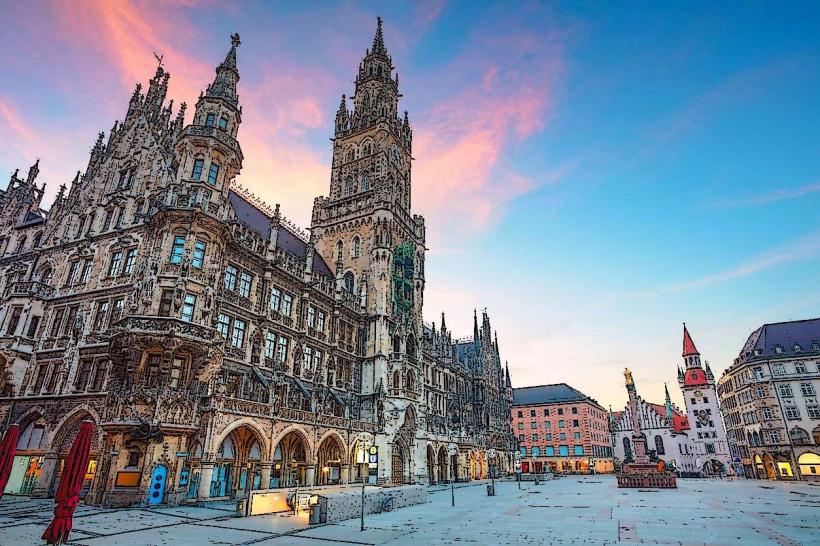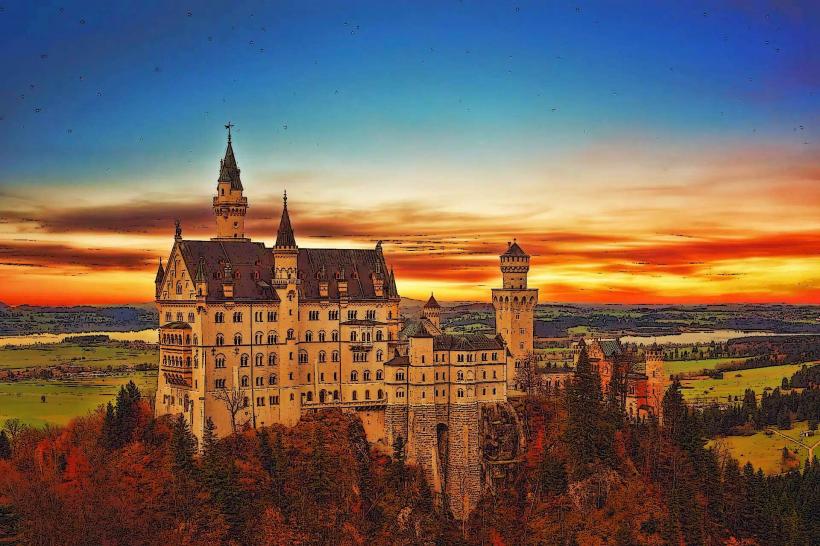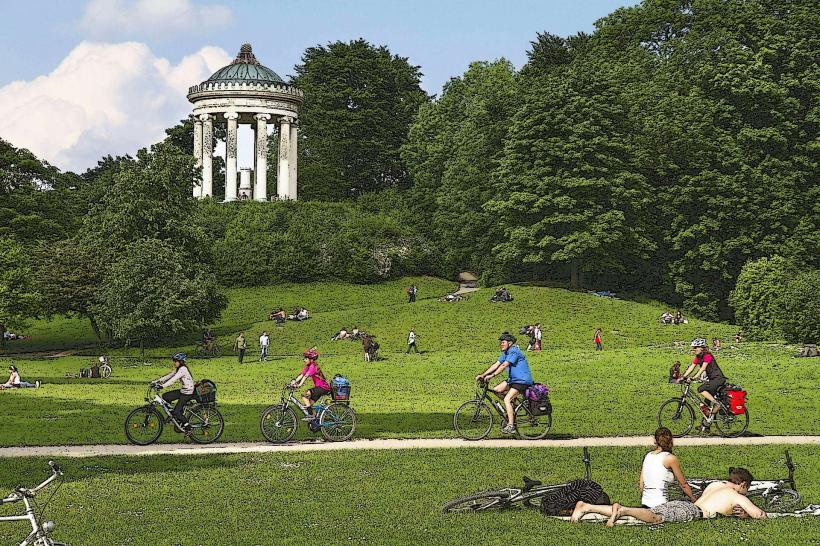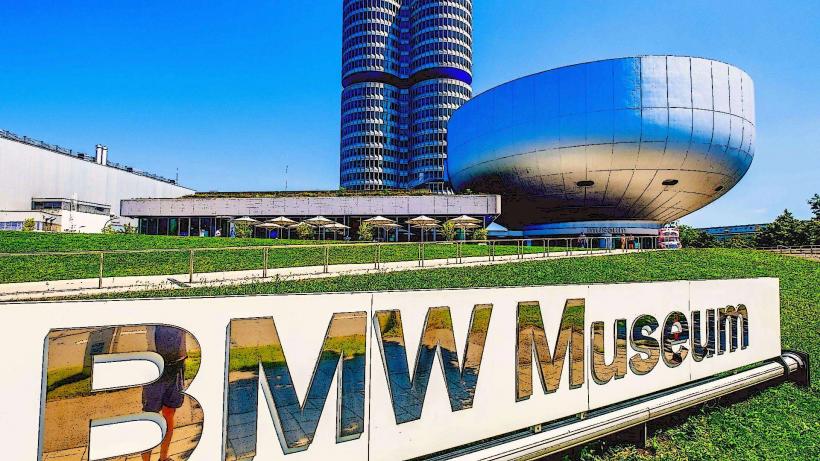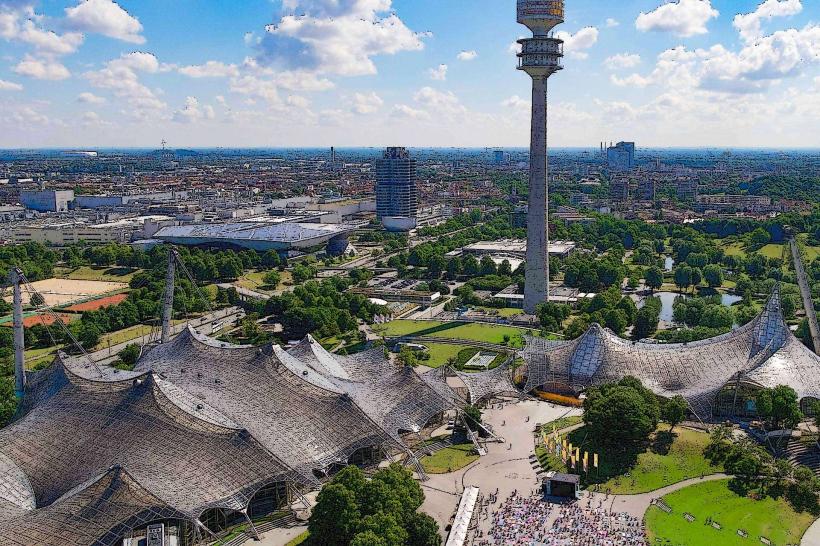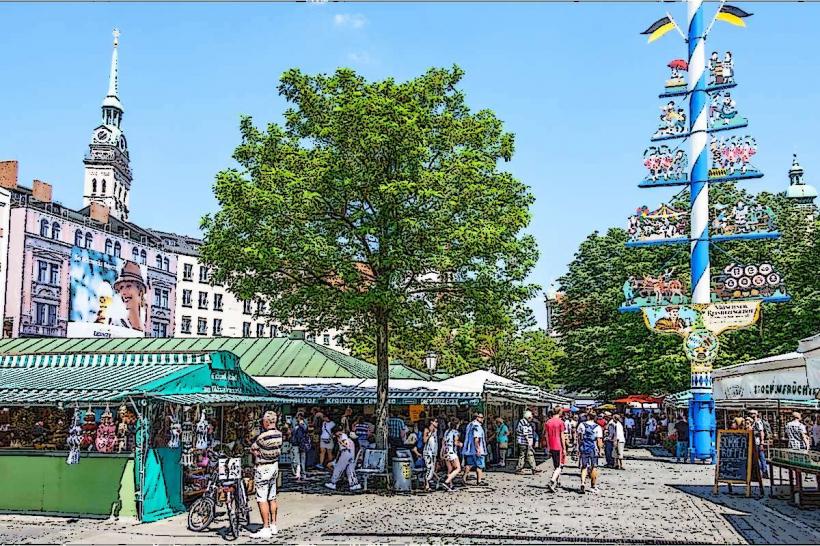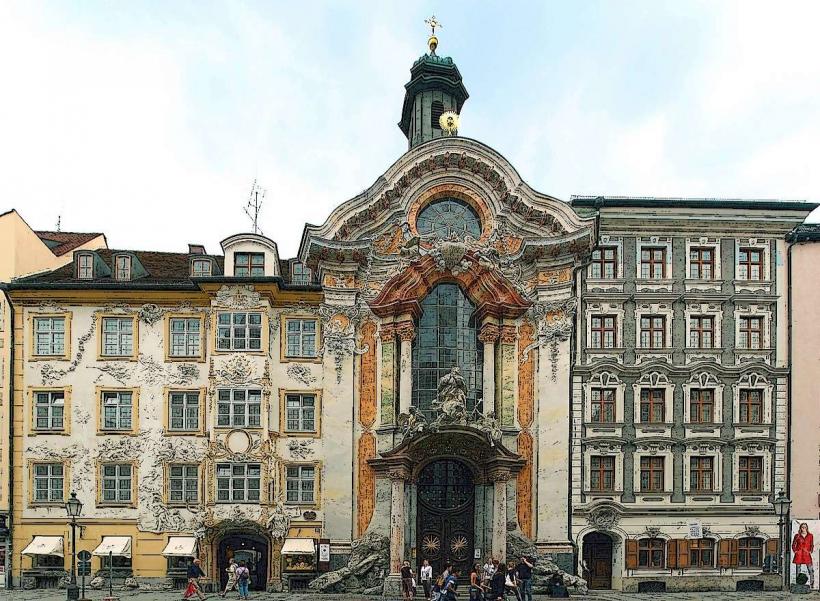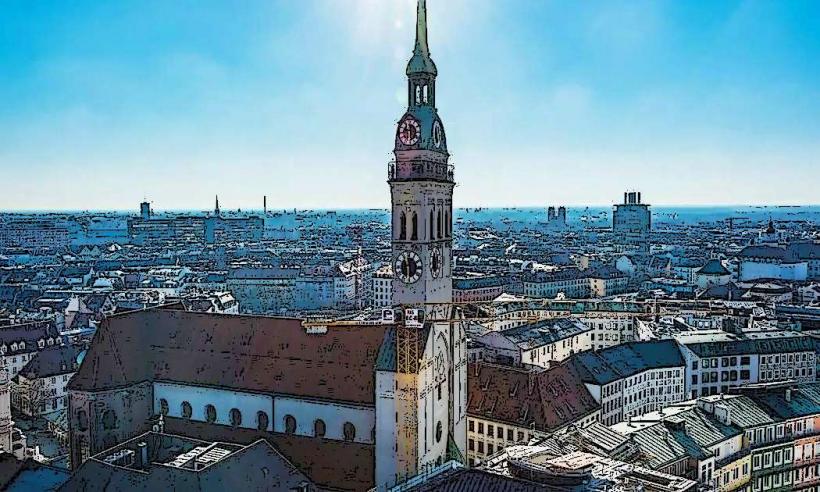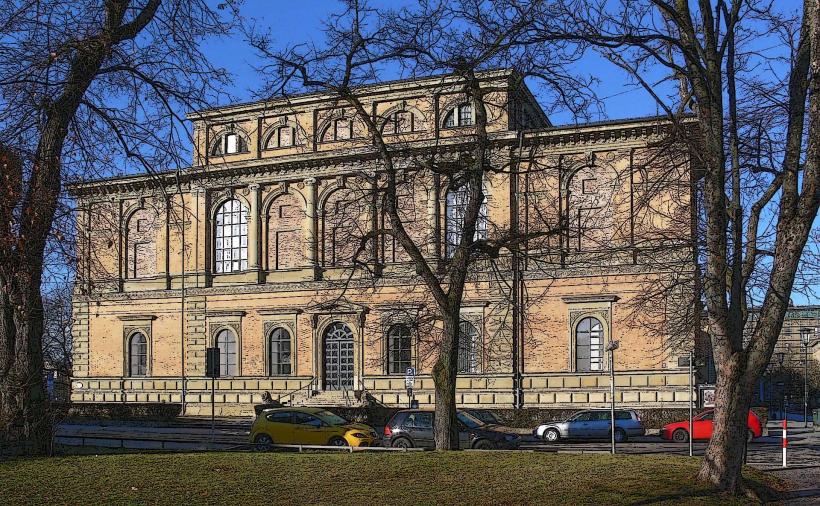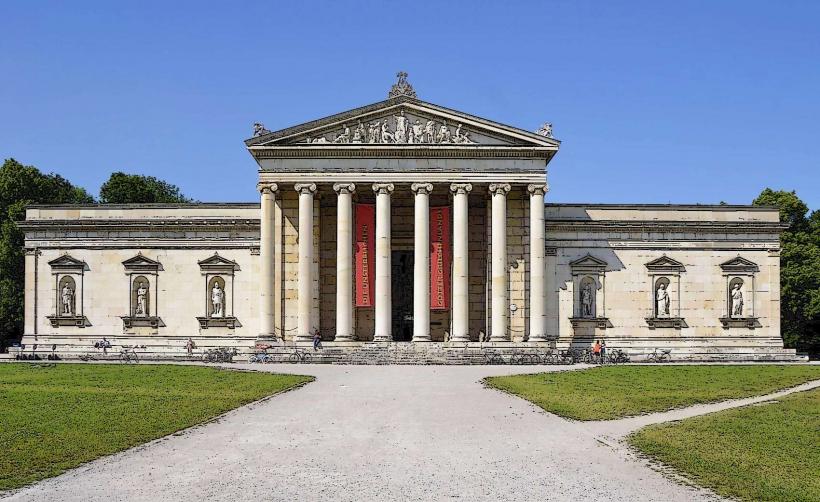Information
Landmark: HofbrauhausCity: Munich
Country: Germany
Continent: Europe
Hofbrauhaus, Munich, Germany, Europe
The Hofbräuhaus in Munich is one of the most famous beer halls in the world and a true symbol of Bavarian culture and hospitality. Founded in 1589, it has become a historic landmark and an essential part of Munich’s identity. Known for its traditional Bavarian beer, hearty food, and lively atmosphere, the Hofbräuhaus is a must-visit destination for anyone experiencing the city.
1. History and Origins
- Founding: The Hofbräuhaus was originally established in 1589 by Duke Wilhelm V of Bavaria, who sought to create a brewery that could supply the court and other members of the royal family with high-quality beer. The brewery was initially part of the Royal Brewery, and the name "Hofbräuhaus" literally translates to “Court Brewery.”
- Royal Connection: For many years, the Hofbräuhaus was a private establishment used mainly by the royal family and the nobility. However, by the 19th century, it began to open its doors to the public, allowing common people to enjoy the beer and food that had previously been reserved for the elite.
- Expansion: Over the years, the Hofbräuhaus became more than just a brewery; it became a symbol of Bavarian beer culture and hospitality. In the 19th century, it grew significantly, attracting locals, tourists, and beer lovers from all over Europe.
- World War II and Reconstruction: The Hofbräuhaus was heavily damaged during World War II, and the building had to be reconstructed. Despite this setback, it regained its status as one of the city’s top cultural destinations after reopening in 1958.
2. Architecture and Interior Design
- Traditional Bavarian Style: The Hofbräuhaus’s architecture is a reflection of Bavarian tradition and is designed to create an atmosphere of warmth and conviviality. The main hall, where guests gather to enjoy food and drink, is spacious and has long wooden tables where patrons sit together in the time-honored style of Bavarian beer gardens and beer halls.
- Beer Hall: The central beer hall is the heart of the Hofbräuhaus. It’s a large room with vaulted ceilings, wooden beams, and long communal tables. Visitors can sit next to locals or other tourists, sharing in the experience of traditional Bavarian beer culture. The atmosphere is lively, with the sound of clinking steins and traditional German folk music filling the air.
- The Stüberl: For those seeking a quieter or more private experience, the Hofbräuhaus also features smaller rooms called Stüberl. These rooms offer a more intimate setting, still with the same Bavarian charm but in a cozier atmosphere.
- The Beer Garden: The Hofbräuhaus also features an outdoor beer garden, which is especially popular during the warmer months. Located in the courtyard, the garden is perfect for enjoying a cold beer and a traditional Bavarian meal under the shade of trees.
3. Beer and Food
- The Beer: The Hofbräuhaus is famous for serving the iconic Hofbräu beer, brewed according to traditional Bavarian recipes. The beer is available in several varieties, including:
- Hofbräu Original (a pale lager)
- Hofbräu Dunkel (a dark beer)
- Hofbräu Weißbier (a wheat beer)
- Hofbräu Oktoberfestbier (special beer brewed for the Oktoberfest) The beer is brewed in the Hofbräuhaus brewery located in Munich, ensuring that visitors are enjoying an authentic, local experience. The beer is served in the classic 1-liter stein, which has become a symbol of Bavarian beer culture.
- Food: The Hofbräuhaus is also renowned for its hearty Bavarian cuisine, which is designed to pair perfectly with the beer. Traditional dishes include:
- Pretzels (Brezn): Large, soft, salty pretzels that are a staple in Bavarian beer halls.
- Weißwurst: A type of traditional Bavarian sausage made with minced veal and pork back bacon.
- Schweinehaxe: A crispy roasted pork knuckle, often served with sauerkraut and mashed potatoes.
- Sauerbraten: A marinated pot roast, typically served with red cabbage and dumplings.
- Knödel: Traditional potato or bread dumplings, often served as a side dish.
- Leberkäs: A Bavarian meatloaf, typically served with mustard and a roll. The combination of freshly brewed beer and delicious, hearty food creates a quintessential Bavarian dining experience that attracts both locals and tourists.
4. The Hofbräuhaus Experience
- Traditional Bavarian Atmosphere: The Hofbräuhaus is more than just a place to eat and drink; it’s an experience. Visitors are encouraged to interact with their fellow patrons, and the conviviality and communal spirit of the beer hall are key elements of the experience. It’s a place where people come together to enjoy beer, food, and live music.
- Oompah Bands: The Hofbräuhaus features live traditional German oompah bands that play Bavarian folk music and traditional drinking songs. The music adds to the festive atmosphere, and visitors often join in singing along or clapping to the beat.
- Beer Stein Tradition: Visitors can order a Hofbräuhaus beer stein (often a 1-liter version) and enjoy their beer in the traditional Bavarian style. The steins are made of stoneware, and some have intricate designs. It’s a classic souvenir for visitors and a fun way to enjoy the authentic beer hall experience.
- Oktoberfest: The Hofbräuhaus is a key part of Munich’s world-famous Oktoberfest celebrations. During this time, the beer hall gets especially lively, and the atmosphere is electric. The Hofbräuhaus itself holds large events, and its beer tent at Oktoberfest is one of the most popular places to be.
5. Cultural and Historical Significance
- A Symbol of Bavarian Traditions: The Hofbräuhaus is more than just a beer hall; it is a symbol of Bavarian culture and tradition. Its longstanding history reflects the region's deep connection to beer brewing and hospitality.
- Historic Events: Throughout its long history, the Hofbräuhaus has been the site of many significant events. For instance, it was a popular meeting place for members of the Nazi Party in the 1920s, including Adolf Hitler, who gave speeches at the beer hall in the early days of the party. Today, however, the Hofbräuhaus is more a symbol of the cultural vibrancy of Munich, rather than a site of political significance.
- Tourist Attraction: Today, the Hofbräuhaus draws millions of visitors each year. Its central location in Munich, near Marienplatz, makes it easily accessible to tourists. The beer hall is often one of the first stops for visitors looking to experience authentic Bavarian culture.
- A Gathering Place: The Hofbräuhaus is still a place where both locals and tourists gather to enjoy good beer, good food, and good company. It remains one of Munich’s most enduring landmarks and an essential part of the city’s cultural and social life.
6. Visiting the Hofbräuhaus
- Opening Hours: The Hofbräuhaus is open daily, with the beer hall typically opening around 9:00 AM and staying open late into the evening. It’s a popular spot for both lunch and dinner.
- Location: The Hofbräuhaus is located in the heart of Munich, at Platzl 9, just a short walk from Marienplatz and other major attractions in the city’s historic center.
- Reservations: While the Hofbräuhaus is large and can accommodate many guests, it can get very busy, especially during peak hours and on weekends. Reservations are recommended for larger groups or during the Oktoberfest season.
7. Conclusion
The Hofbräuhaus is a quintessential part of Munich’s history and culture, offering visitors a chance to experience the city’s lively beer hall tradition. With its historic roots, delicious beer, hearty food, and festive atmosphere, it remains one of the top attractions for both locals and tourists. Whether you're looking to enjoy a cold beer, indulge in traditional Bavarian cuisine, or simply soak in the unique atmosphere, the Hofbräuhaus is an unmissable destination in Munich.

